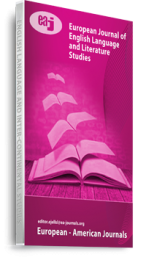Differeciated learning is what the current systems of education require in order to carter for all learners .Collaborative teaching offers value creation as learners work in their small groups. Everyone in the group has a responsibility to perform and the facilitator supervise to ensure all learners are inclusive in the group activities. While small group strategy is used a lot of ideas are shared, thus a big task achieved. Small group is enormously worthwhile, both for facilitator and learners. This methodology is vital in teaching and learning of composition writing skill. Communication and collaboration is instilled in the learners thus enhancement of the writing of English composition. A ‘cognitive’ approach to small group teaching, building on the theories of Piaget, would propose that learning interactively in small groups is useful to learners since the procedure of debating, decisions, dealing with conflict, and integration different perspectives is a necessary part of how cognitive development takes place. This thought about cognition also underpins the notion of ‘cognitive elaboration (Dansereau, 1988), which points out that cognitive development is based on reformulating or elaborating existing knowledge into new forms – a sort of unlearning and relearning of knowledge. The study objective is : To examine the influence of small groups’ technique on learners’ achievement in composition writing skills in public primary schools in Kisumu County. Drawn from Lev Vygotsky (1962; 1978) the vision of pedagogy is based on the idea of learning as an interactive, social process, within which the facilitator directs the transition of the learners into the Zone of proximal development in order to cultivate new knowledge in order to cultivate new knowledge. Pre-test Post-test nonequivalent groups research design was adopted, sample size of 292 was drawn from 6 teacher of English, 6 head teacher and standard seven pupils in public schools. Data were collected via questionnaire, observation schedule and check list. Analysis was done using descriptive statistics. The study found that for small group learning technique: revised strategy is moderately used (m= 3.80 with SD of 2.960) buzz strategy is moderately (m= 3.40 with SD of 2.106) used in teaching composition and three minutes strategy is highly used (M= 4.20 with SD of 2.269) in composition teaching. The computed z values for brainstorming technique elements revealed a z-statistic value higher than the z Critical value and P-value less than 0.05. Thus, the study rejected the entire five Null hypotheses as there was a statistically significant relationship between: individual group technique, whole class technique, small group technique, round robin technique and relay technique; and learners’ achievement in composition writing skills in public primary schools in Kisumu County. The study recommended that similar studies to be carried out using inferential statistics, especially multiple regression analysis to assess how the individual strategies of brainstorming teaching technique contribute to overall learners learning achievements. Other researches can use the Humanist child development theory to carter for the concerns of a paradigm shift to the thinking about holistic development of the learners., the policy makers and implementers ministry of Education and Kenya National Examination Council, to address the use of inquiring-based learning in order to provoke critical-thinking in learners as the new (CBC) get rooted to curb the negative attitude of embracing change of teaching for life and not for exams.
Keywords: English, Kenya, Kisumu, Primary schools., Standard, collaborative, composition writing, public, seven learners’ achievement, small group strategy

